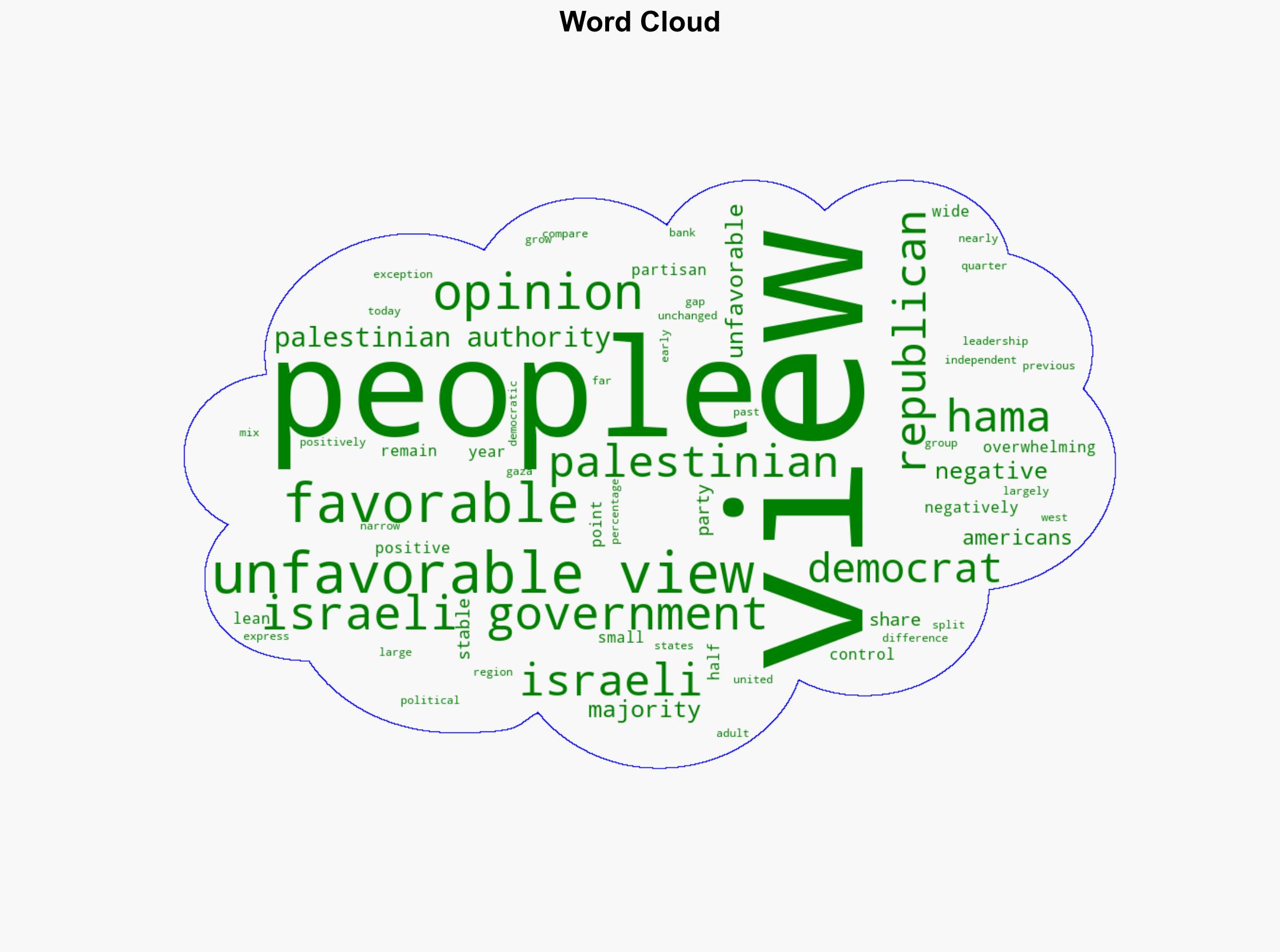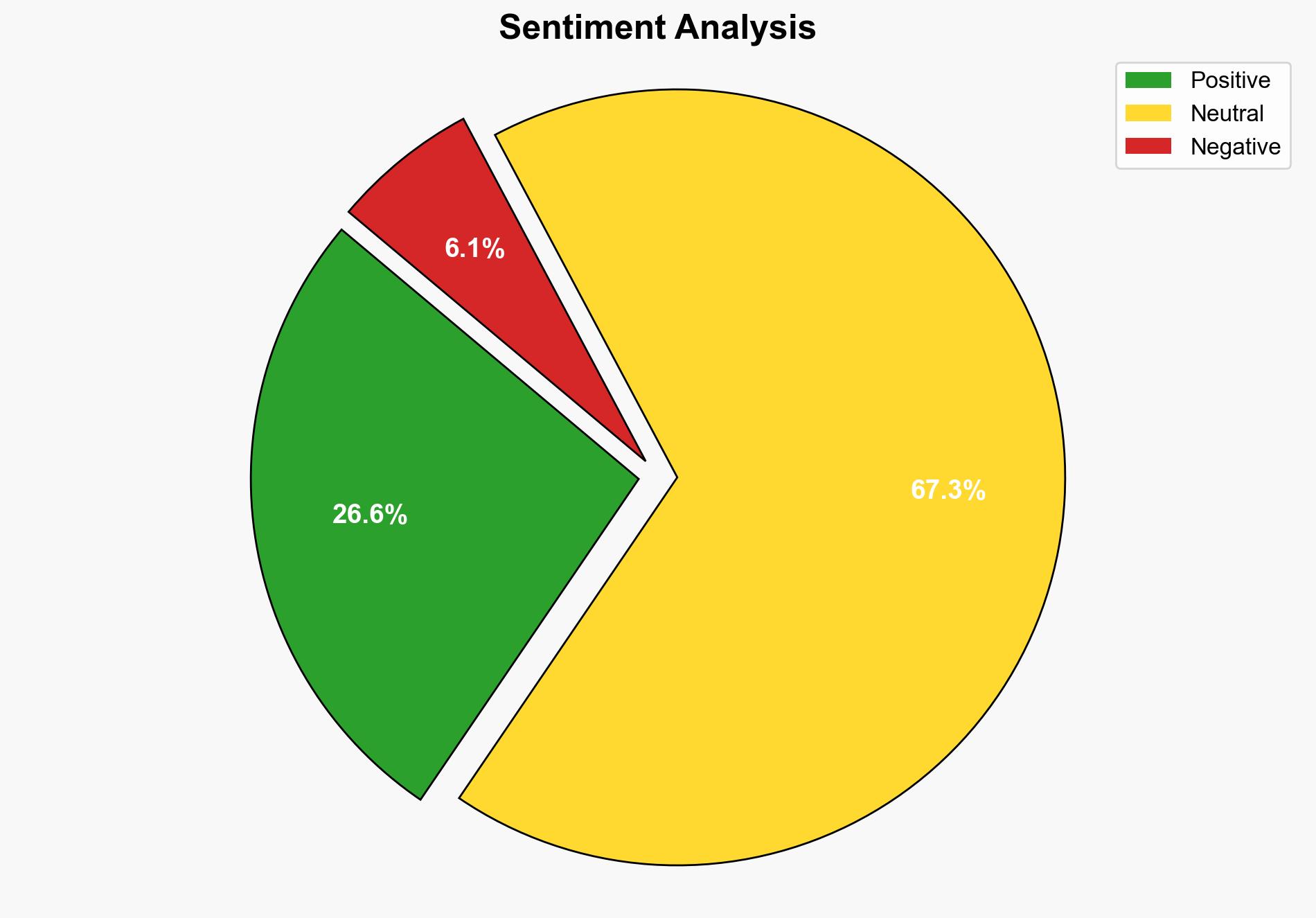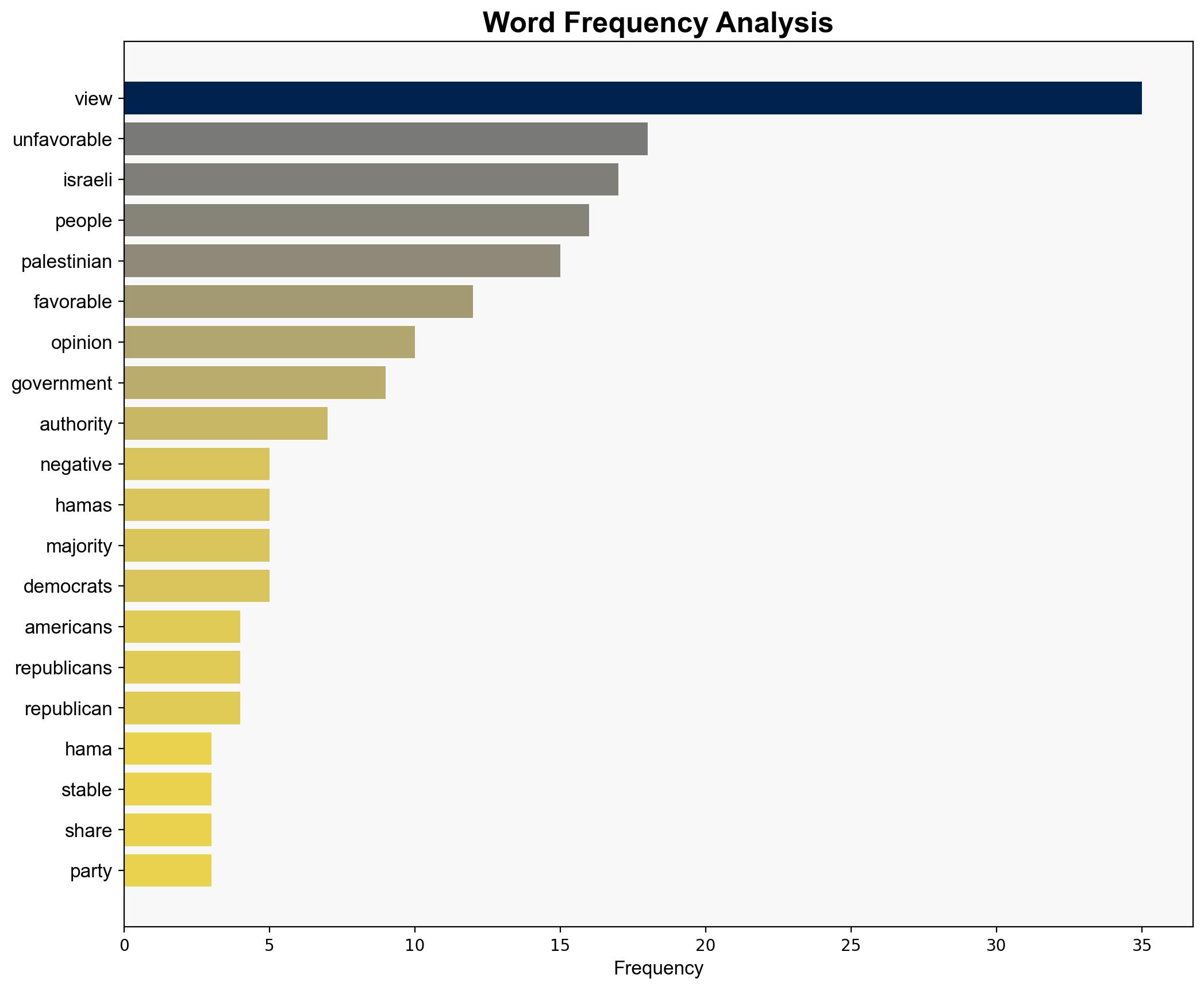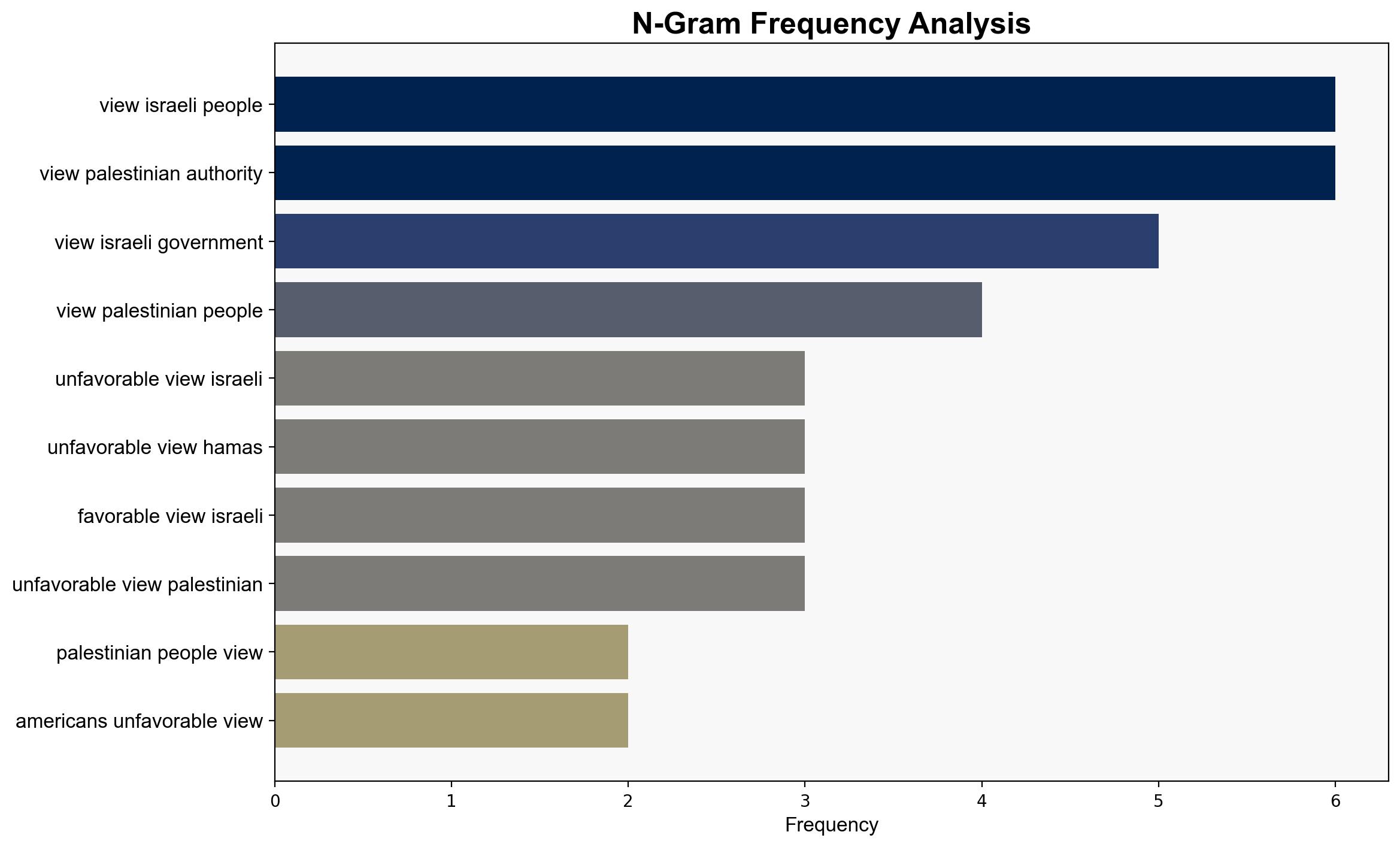2 Americans views of Israelis Palestinians and their political leadership – Pew Research Center
Published on: 2025-10-03
Intelligence Report: 2 Americans views of Israelis Palestinians and their political leadership – Pew Research Center
1. BLUF (Bottom Line Up Front)
The analysis indicates a significant partisan divide in American views towards Israelis, Palestinians, and their respective political leaderships. The hypothesis that political affiliation strongly influences these perceptions is better supported. Confidence level: Moderate. Recommended action: Enhance public diplomacy efforts to address misconceptions and foster a more nuanced understanding of the geopolitical dynamics.
2. Competing Hypotheses
1. **Hypothesis A**: American views on Israelis and Palestinians are primarily influenced by recent geopolitical events and media portrayals, leading to a generally unfavorable view of political leadership in the region.
2. **Hypothesis B**: Political affiliation is the primary determinant of American views on Israelis and Palestinians, with Republicans generally favoring Israelis and Democrats showing more balanced views towards both groups.
Using ACH 2.0, Hypothesis B is more supported due to the clear partisan differences highlighted in the data, such as the wide majority of Republicans favoring Israelis compared to Democrats, who are more split.
3. Key Assumptions and Red Flags
– Assumptions: The data accurately reflects broader American opinions; media influence is consistent across political affiliations.
– Red Flags: Potential bias in survey methodology; lack of context regarding media consumption patterns.
– Blind Spots: The influence of specific geopolitical events or media outlets is not directly addressed.
4. Implications and Strategic Risks
The partisan divide in perceptions could exacerbate domestic polarization and complicate U.S. foreign policy in the Middle East. A lack of nuanced understanding may lead to oversimplified policy decisions, increasing geopolitical tensions. Economic and cyber dimensions could be affected if misinformation spreads, impacting public opinion and policy support.
5. Recommendations and Outlook
- Enhance educational initiatives to provide a more balanced view of Middle Eastern geopolitics.
- Encourage bipartisan dialogue to reduce polarization in foreign policy perspectives.
- Scenario Projections:
- Best: Increased understanding leads to more cohesive foreign policy.
- Worst: Continued polarization results in inconsistent and ineffective policy.
- Most Likely: Partisan views persist, but targeted diplomacy mitigates some risks.
6. Key Individuals and Entities
– Israeli Government
– Palestinian Authority
– Hamas
7. Thematic Tags
national security threats, geopolitical dynamics, public diplomacy, partisan divide




